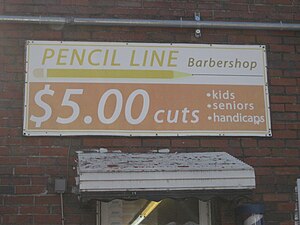We have some great readers. Hers is just one example: I ran a post a few days back on the recommendations for changes to IDEA by the National Association of Secondary School Principals. You can view that post here. They had some good ideas, I felt, but I took them to task on the idea of standards of care for each disability category. I still believe that I am correct, but I received an email suggesting that there is another side. The response was very thoughtful and well-reasoned, so I thought I would share it with you. As the comment shows, there may be more merit to the principals idea than I thought or at least they may have an argument. Here is the comment:
"Just a thought about your recent blog, I agree that standards of care for individual disability categories could defeat the individualized requirement of developing IEPs. It runs the risk of furthering categorizing kids into this disability or that, when we know that for most children, they do not necessarily fit into neat boxes.
However, I have long thought that the whole process of what is FAPE for my child to be extremely lacking in transparency. There is no consumer focused source of information that parents can access to know what are the best practices that my child's school should be using for my child's situation. ... I always give the example of what if their child was diagnosed with a medical issue that needed some type of intervention like surgery. The doctor is required to give me a full accounting of the condition, recommended interventions, risks and benefits of each intervention, reasons why an intervention is being recommended and access to a second opinion. Then, there are many reliable web resources to research the skills and previous mistakes an individual Dr. or hospital has made and information about the medical issue and treatment.
Contrast that with parents experience in the IEP process. A school generally tells a parent what they are going to provide, that they know best what to provide, they do not give information about other possible strategies and there is no evaluation available about the school's competency other than AYP data. Can you imagine a parent letting a surgeon take their child off to the operating room with as little information and such a weak informed consent process?
Creating standards of care might benefit schools by saying this is all you need to do and then you are off the hook. However, it could also raise the competency level of staff by saying this is approach is evidence-based and has been shown to work and you can give parents more to go on than just we think this is the right approach.
The down side is that we will get too tied to evidence-based practices and forget that education is not a science but also an art. Each human is different and responds with their own constellation of humanness to different strategies. Maybe standards of care could be established without becoming bureaucratic boxes. That might be just too much for such an industrial age system. I don't know."
So what do you think?
 Image via Wikipedia
Image via Wikipedia
So what do you think?
